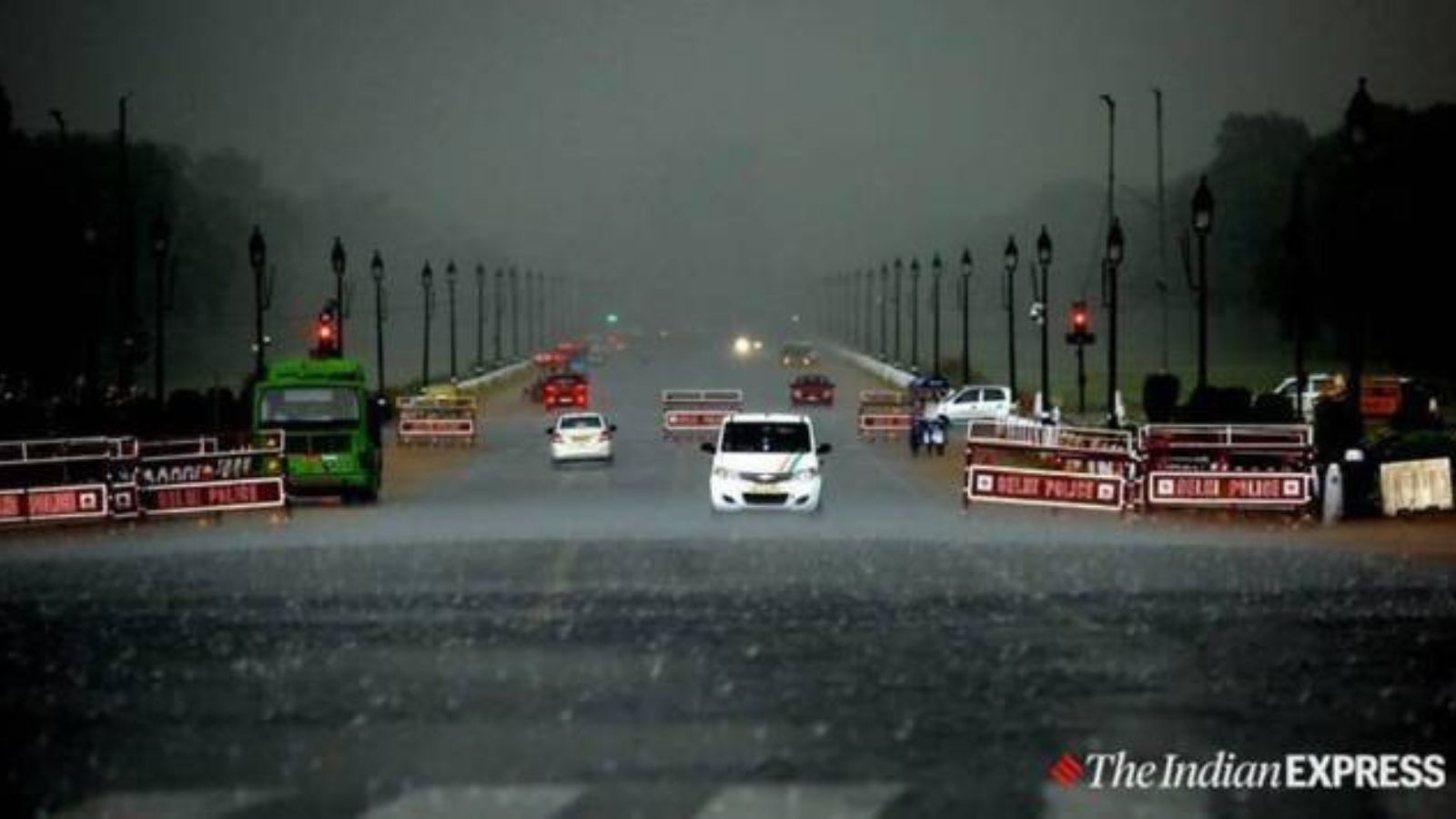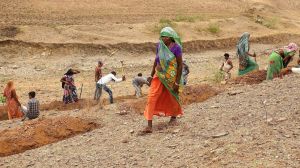Stay updated with the latest - Click here to follow us on Instagram
Rain likely to bring respite to Delhi today after it records warmest Feb night in 74 years
Light rainfall is expected to persist till Saturday with the minimum temperature dipping further to 15 degrees.
 This month Delhi has recorded maximum and minimum average temperatures of 26.8 degrees Celsius and 11.4 degrees Celsius, respectively. (File Photo)
This month Delhi has recorded maximum and minimum average temperatures of 26.8 degrees Celsius and 11.4 degrees Celsius, respectively. (File Photo)Delhi woke up to cloudy skies with India Meteorological Department (IMD) predicting rain accompanied by thunderstorms Friday, a day after the Capital recorded its warmest February night in 74 years.
On Friday, the minimum temperature settled at 18.4 degree Celsius, 5.9 notches above the season’s average, IMD said in its daily bulletin. The maximum temperature is expected to touch 23 degree Celsius. The maximum temperature is expected to touch 23 degrees Celsius.
The approaching western disturbance which caused the temperature rise is also likely to bring respite to Delhi. The IMD forecast said parts of north India are likely to receive rainfall.
On Thursday, at 19.5 degrees Celsius, the temperature was seven degrees above the season’s normal.
Light rainfall is expected to persist till Saturday with the minimum temperature dipping further to 15 degrees. However, the maximum temperature may soar to 28 degrees, as per the IMD. A fresh western disturbance is likely to affect northwest India from March 2.
February has recorded maximum and minimum average temperatures of 26.8 degrees Celsius and 11.4 degrees Celsius, respectively. If the trend continues, this month could become the second hottest February in the last 15 years.
Across north India
The weather department has also predicted scattered to fairly widespread light to moderate rainfall, accompanied by thunderstorms and lightning, over parts of north India including Punjab, Haryana and Chandigarh till Saturday.
In Himachal
The western disturbance is likely to bring snowfall in Himachal Pradesh. According to the Meteorological Center in Shimla, continuous rain and snowfall are expected in the state until March 5.
IMD predicted light rain and snow in a few areas on March 1 and 4, while isolated light showers on March 2 and 5. On March 3, light to moderate rain and snowfall may occur in parts of the state, it said.
Due to severe weather, the government has declared holidays for schools in the Lahaul and Pangi areas on Thursday and Friday.
Heatwave in Maharashtra
Meanwhile, the west coast continues to deal with the effects of a heatwave. Mumbai and its surrounding districts recording above 38.7 and 38.5 degrees Celsius on February 25 and 26–the highest maximum daytime temperatures since 2017.







